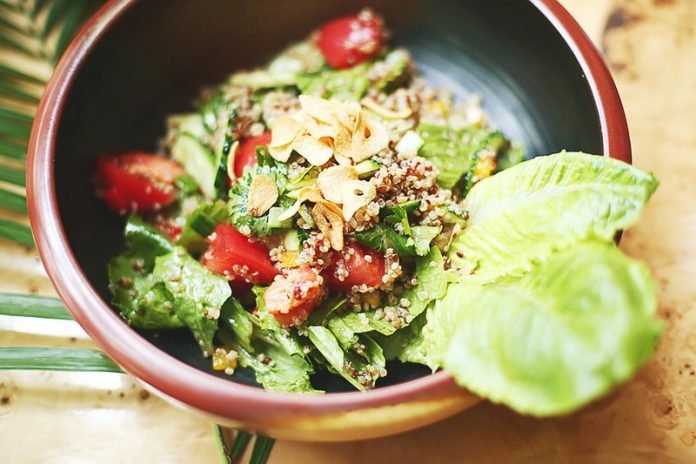
Non-alcoholic fatty liver disease affects 25% to 30% of people in the United States and Europe.
While some fat is normal in the liver, excessive fat (5% or higher) leads to insulin resistance, type 2 diabetes, heart risk, as well as decreased gut microbiome diversity and microbial imbalance.
Since no drug is currently available to treat fatty liver, the only intervention is weight loss and curtailing of alcohol drinking.
In a recent study at Ben-Gurion University and Harvard University, researchers found that a green Mediterranean diet reduces fat more than other healthy diets and cuts non-alcoholic fatty liver disease in half.
The study is published in Gut. One author is Prof. Iris Shai.
In the study, the team developed and tested a new green Mediterranean diet. This modified diet is rich in vegetables, includes a daily intake of walnuts (28 grams), and less processed and red meat.
It is enriched with green components, high in polyphenols, including three to four cups of green tea/day and 100 grams (frozen cubes/day) of a Mankai green shake.
Mankai, an aquatic green plant also known as duckweed, is high in bioavailable protein, iron, B12, vitamins, minerals, and polyphenols.
The team tested 294 workers in their fifties with abdominal obesity. They were divided into three groups: healthy dietary regimen, Mediterranean diet, and green Mediterranean diet.
In addition to the diet, all the participants were given a physical exercise regimen with a free gym membership. The team found that every diet led to liver fat reduction.
However, the green Mediterranean diet resulted in the greatest reduction of hepatic fat (-39%), as compared to the traditional Mediterranean diet (-20%) and the healthy dietary guidelines (-12%).
Overall, the green Mediterranean diet produced dramatic reductions in fatty liver.
Non-alcoholic fatty liver disease prevalence dropped from 62% at baseline to 31.5% in the green Mediterranean group, down to 47.9% in the Mediterranean group, and 54.8% in the healthy dietary regimen group.
Specifically, greater Mankai and walnut intake and less red/processed meat intake were strongly linked to the extent of fat loss.
The researchers suggest that the effect of polyphenols and the reduction in red meat plays a role in liver fat reduction.
Copyright © 2021 Knowridge Science Report. All rights reserved.



